Sleep Study Referral: Understanding the Process and Requirements
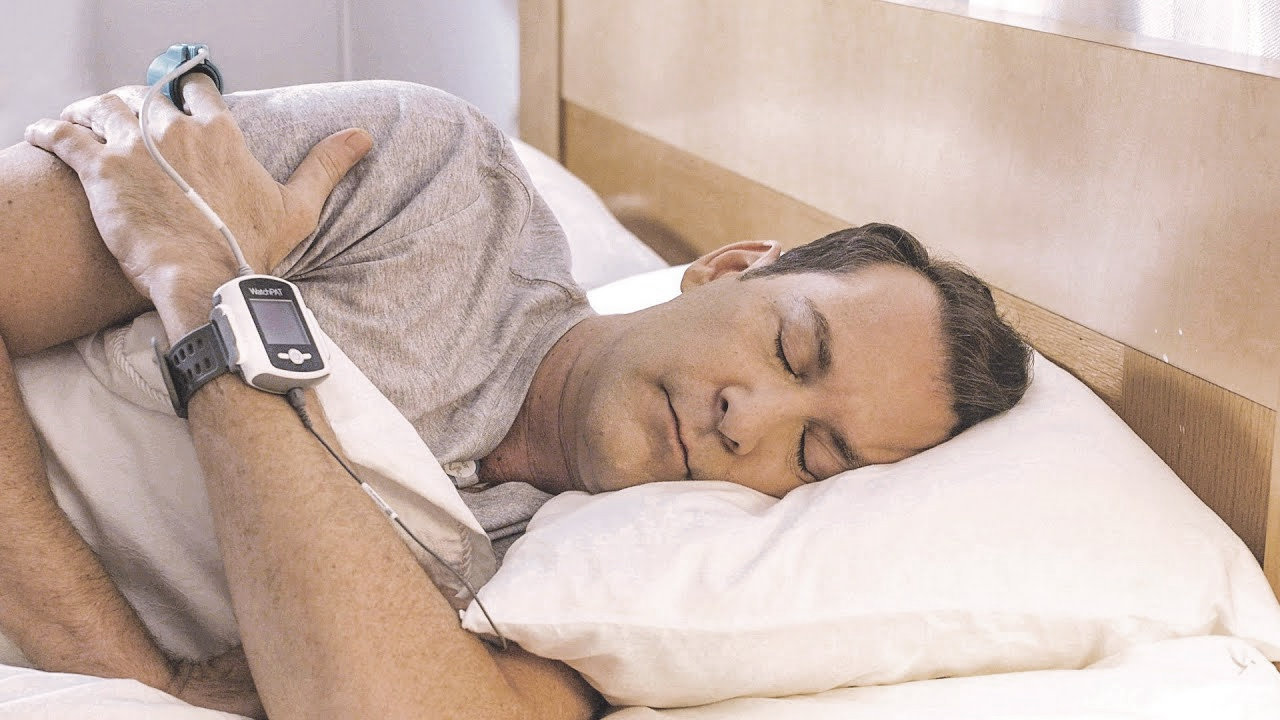
In today’s fast-paced world, getting a good night’s sleep has become increasingly difficult for many individuals. From hectic work schedules to the constant distractions of technology, it’s no wonder that sleep disorders are on the rise. If you’re experiencing persistent sleep issues, your healthcare provider may recommend a sleep study to further investigate the cause of your sleep problems. Understanding the process and requirements of a sleep study can help you prepare and ensure a smooth experience.
Understanding Sleep Studies
What is a Sleep Study?
A sleep study, also known as polysomnography, is a non-invasive test that monitors and evaluates various aspects of your sleep. It involves spending a night at a sleep center, where trained healthcare professionals observe and record your sleep patterns, breathing, heart rate, brain activity, and other physiological parameters. The data collected during a sleep study provide valuable insights into the quality and quantity of your sleep, as well as any potential sleep disorders you may have.
Importance of Sleep Studies
Sleep studies play a crucial role in diagnosing and managing sleep disorders such as insomnia, sleep apnea, narcolepsy, and restless leg syndrome. By identifying the root cause of your sleep disturbances, healthcare professionals can develop personalized treatment plans to improve your sleep quality and overall well-being. Moreover, untreated sleep disorders can lead to serious health concerns, including cardiovascular issues, cognitive impairment, and decreased immune function. Therefore, undergoing a sleep study referral can be a pivotal step towards better health.
Types of Sleep Studies
There are different types of sleep studies that can be conducted based on the specific sleep disorder suspected. For example, a split-night sleep study involves diagnostic testing for sleep apnea during the first half of the night, followed by continuous positive airway pressure (CPAP) therapy during the second half to determine the optimal treatment. Multiple sleep latency tests (MSLT) are used to diagnose narcolepsy by measuring how quickly you fall asleep during the day. Additionally, maintenance of wakefulness tests (MWT) assess your ability to stay awake during the day, which is crucial for professions that require high levels of alertness. Learn more about Sleep Study Ipswich: Analysing Sleep Patterns in Queensland visit at https://mhsblogs.com/sleep-study-ipswich-analysing-sleep-patterns-in-queensland/
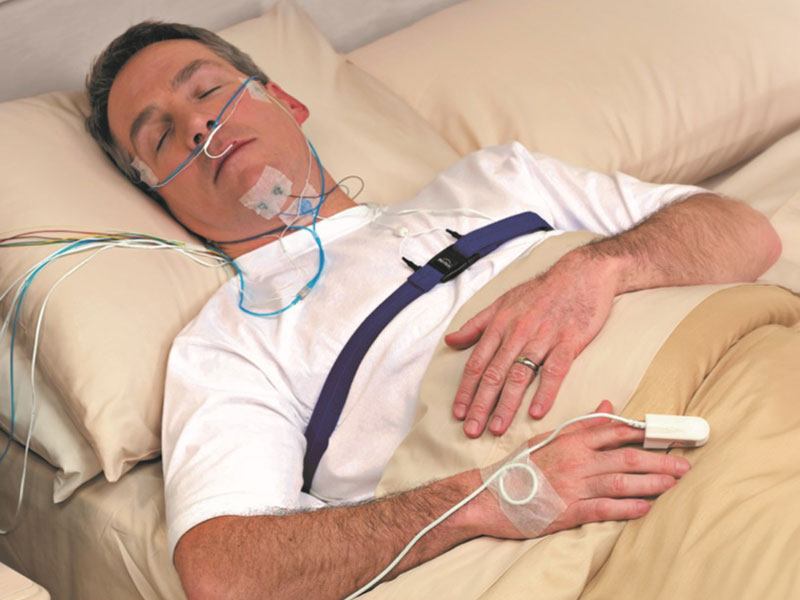
Table of Contents
TogglePreparing for a Sleep Study
Prior to a sleep study, it is important to follow certain guidelines to ensure accurate results. This may include avoiding caffeine and alcohol consumption, as well as certain medications that could interfere with the monitoring equipment. It is also recommended to bring comfortable sleepwear and any items that help you relax before bedtime, such as a favorite book or pillow. Creating a sleep-conducive environment at the sleep center can help you feel more at ease and mimic your typical bedtime routine for a more accurate assessment of your sleep patterns.
The Referral Process for Sleep Studies
When it comes to the referral process for sleep studies, understanding who can refer you is crucial. Sleep studies are typically recommended by a variety of healthcare professionals, including primary care physicians, pulmonologists, neurologists, or sleep medicine specialists. These specialists are trained to identify and diagnose sleep disorders, making them well-equipped to determine if a sleep study is necessary for your specific situation. Learn more about pulmonologists click here.
Who Can Refer You for a Sleep Study?
Sleep studies are typically recommended by primary care physicians, pulmonologists, neurologists, or sleep medicine specialists. If you’re experiencing persistent sleep problems, it’s important to discuss your symptoms and concerns with your healthcare provider. Based on your medical history, symptoms, and initial evaluations, they will determine whether a sleep study is necessary.
Primary care physicians are often the first point of contact for individuals experiencing sleep issues. They can conduct initial assessments, provide basic treatments, and refer you to specialists if needed. Pulmonologists specialize in respiratory conditions and can identify sleep-related breathing disorders like sleep apnea. Neurologists focus on disorders of the nervous system, including conditions that affect sleep patterns. Sleep medicine specialists have specific training in sleep disorders and can offer comprehensive evaluations and treatments.
Steps in the Referral Process
The referral process may vary depending on your healthcare provider and local practices. Generally, it involves an initial consultation where you discuss your sleep concerns, followed by a physical examination and a review of your medical history. Your healthcare provider will then assess whether you meet the criteria for a sleep study referral. If a referral is deemed appropriate, they will provide further instructions on how to proceed.
During the initial consultation, it’s important to provide detailed information about your sleep habits, symptoms, and any factors that may be affecting your sleep quality. This will help your healthcare provider make an informed decision about whether a sleep study is necessary. Additionally, be prepared to discuss any underlying medical conditions, medications you’re taking, and lifestyle factors that could impact your sleep.
Requirements for a Sleep Study Referral
Are you struggling with persistent fatigue, loud snoring, or frequent awakenings during the night? These symptoms could be indicative of an underlying sleep disorder that warrants a thorough evaluation through a sleep study. While each case is unique, there are several medical conditions and symptoms that may prompt a healthcare provider to recommend a sleep study referral.
In addition to the common symptoms like excessive daytime sleepiness and morning headaches, individuals with underlying medical conditions such as obesity, heart disease, and diabetes are at a higher risk of developing sleep disorders. The presence of conditions like sleep apnea, restless legs syndrome, or insomnia can significantly impact your overall health and quality of life. Therefore, a comprehensive sleep study evaluation is crucial in identifying and addressing these issues effectively. Learn more about common symptoms visit at https://uhs.princeton.edu/health-resources/common-illnesses.
Medical Conditions that Warrant a Sleep Study
While each case is unique, there are several medical conditions and symptoms that may warrant a sleep study referral. These include excessive daytime sleepiness, loud snoring, frequent awakenings during the night, morning headaches, gasping or choking during sleep, and witnessed pauses in breathing. Additionally, individuals with underlying medical conditions such as obesity, heart disease, and diabetes are at an increased risk of developing sleep disorders and may require a sleep study evaluation.
It’s essential to recognize the potential impact of untreated sleep disorders on your overall health and well-being. By addressing these issues proactively, you can improve your sleep quality, enhance your daytime functioning, and reduce the risk of associated health complications.
Necessary Documentation for a Referral
When seeking a sleep study referral, it’s important to provide your healthcare provider with accurate and detailed information. This may include a comprehensive list of your symptoms, information about your sleep habits and patterns, any previous sleep study results, and a list of current medications. By sharing this information, you can assist your healthcare provider in making an informed decision regarding your sleep study referral.
Remember, a sleep study is a valuable tool in diagnosing and managing various sleep disorders. By collaborating with your healthcare team and actively participating in the evaluation process, you can take proactive steps towards improving your sleep quality and overall health.
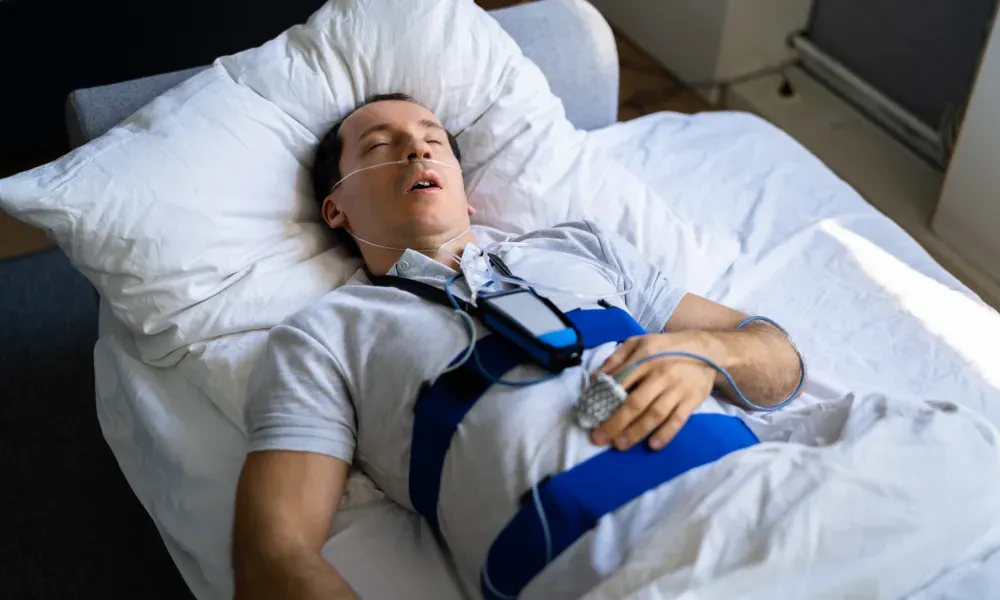
Preparing for Your Sleep Study
Embarking on a sleep study can be a new and somewhat daunting experience for many individuals. However, understanding what lies ahead can help ease any apprehensions you may have. Upon your arrival at the sleep center, you will be ushered into a cozy room meticulously designed for sleep studies. The array of monitoring equipment, though extensive, is completely painless and non-intrusive. Tiny sensors will be affixed to different parts of your body to monitor a range of vital signs including brain waves, eye movements, breathing patterns, heart rate, and muscle activity. Despite the initial strangeness of being hooked up to these devices, sleep centers take great care to cultivate a serene and homelike ambiance to ensure you have a restful and comfortable sleep environment.
What to Expect During the Study
Throughout the night, trained professionals will discreetly monitor your sleep patterns and vital signs from a separate control room. They will observe your responses to various sleep stages and disturbances, all while ensuring your safety and well-being. The data collected during the study will provide valuable insights into your sleep quality and any underlying sleep disorders that may be affecting your rest. By participating in a sleep study, you are taking a proactive step towards understanding and improving your sleep health.
Tips for the Night Before Your Study
To ensure the accuracy and effectiveness of your sleep study, it is crucial to adhere to the specific guidelines outlined by the sleep center. These guidelines typically include refraining from the consumption of caffeine or alcohol a few hours before the study, avoiding excessive daytime napping, and sticking to your usual bedtime routine. Additionally, consider bringing along your favorite sleepwear, personal toiletries, and any items that contribute to your sleep comfort, such as a beloved pillow or soothing sleep mask. By following these recommendations, you can optimize the conditions for a successful and informative sleep study experience.
Interpreting Sleep Study Results
Understanding Your Sleep Study Report
Once your sleep study is complete, the recorded data will be meticulously analyzed by sleep technologists and interpreted by sleep medicine specialists. The results will be compiled into a comprehensive sleep study report, which will provide insights into your sleep architecture, breathing patterns, sleep stages, and presence of any sleep disorders. It’s important to schedule a follow-up appointment with your healthcare provider to discuss the findings and determine the appropriate course of action.
Next Steps After Receiving Your Results
After receiving your sleep study results and discussing them with your healthcare provider, you may be recommended for further evaluation or treatment. Depending on the findings, your healthcare provider may suggest lifestyle modifications, continuous positive airway pressure (CPAP) therapy, medication, or referral to a sleep specialist. Adhering to the proposed treatment plan and making necessary adjustments to your lifestyle can significantly enhance your sleep quality and overall well-being.
Understanding Sleep Architecture
Sleep architecture refers to the organization and structure of your sleep. It involves the different stages of sleep, including light sleep, deep sleep, and rapid eye movement (REM) sleep. Each stage plays a crucial role in restoring and rejuvenating your body and mind. By analyzing your sleep architecture, sleep specialists can identify any abnormalities or disruptions that may be affecting the quality of your sleep.
Unraveling Breathing Patterns
During a sleep study, your breathing patterns are closely monitored to detect any signs of sleep-related breathing disorders, such as sleep apnea. Sleep apnea is a condition characterized by pauses in breathing during sleep, leading to fragmented sleep and decreased oxygen levels in the body. By examining your breathing patterns, sleep specialists can determine the severity of sleep apnea or other breathing disorders and recommend appropriate treatment options.In conclusion, understanding the process and requirements of a sleep study is essential for individuals experiencing persistent sleep issues. By grasping the purpose of sleep studies, the referral process, and the necessary preparations, you can approach your sleep study experience with confidence. Remember, sleep plays a vital role in our overall health, and taking proactive steps to address sleep disorders can lead to significant improvements in both physical and mental well-being. So don’t let sleep problems go unnoticed – reach out to your healthcare provider and begin your journey to better sleep today.
In today’s fast-paced world, getting a good night’s sleep has become increasingly difficult for many individuals. From hectic work schedules to the constant distractions of technology, it’s no wonder that sleep disorders are on the rise. If you’re experiencing persistent sleep issues, your healthcare provider may recommend a sleep study to further investigate the cause…
Recent Posts
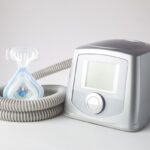 Ultimate Guide to Choosing an Oxygen Concentrator in Australia (2026)ntroduction to Modern Oxygen Therapy For many Australians living with chronic respiratory conditions, maintaining an active lifestyle in cities like Sydney requires more than just medical advice—it requires the right technology. An oxygen concentrator is […]
Ultimate Guide to Choosing an Oxygen Concentrator in Australia (2026)ntroduction to Modern Oxygen Therapy For many Australians living with chronic respiratory conditions, maintaining an active lifestyle in cities like Sydney requires more than just medical advice—it requires the right technology. An oxygen concentrator is […]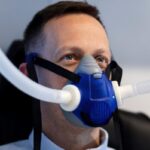 The Best CPAP Mask Options for New Users and What Makes Them ComfortableSleep apnea disrupts breathing during sleep, causing repeated pauses that prevent restful sleep and strain the cardiovascular system. CPAP therapy delivers continuous pressurized air through a mask, keeping airways open throughout the night and enabling […]
The Best CPAP Mask Options for New Users and What Makes Them ComfortableSleep apnea disrupts breathing during sleep, causing repeated pauses that prevent restful sleep and strain the cardiovascular system. CPAP therapy delivers continuous pressurized air through a mask, keeping airways open throughout the night and enabling […] Oxygen Machine for Home Use: A Complete Guide for First-Time BuyersWhat Is an Oxygen Machine and How Does It Work? An oxygen machine for home use, commonly known as an oxygen concentrator, is a medical device that delivers concentrated oxygen to individuals with respiratory conditions. These respiratory therapy devices […]
Oxygen Machine for Home Use: A Complete Guide for First-Time BuyersWhat Is an Oxygen Machine and How Does It Work? An oxygen machine for home use, commonly known as an oxygen concentrator, is a medical device that delivers concentrated oxygen to individuals with respiratory conditions. These respiratory therapy devices […]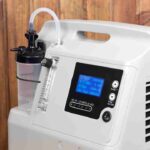 Medical Oxygen at Home: Essential Information on Oxygen Tanks, Machines, and TherapiesIntroduction For individuals with chronic respiratory conditions, such as COPD, asthma, or emphysema, medical oxygen therapy at home is often a critical part of maintaining health and improving quality of life. Whether you need an oxygen machine for […]
Medical Oxygen at Home: Essential Information on Oxygen Tanks, Machines, and TherapiesIntroduction For individuals with chronic respiratory conditions, such as COPD, asthma, or emphysema, medical oxygen therapy at home is often a critical part of maintaining health and improving quality of life. Whether you need an oxygen machine for […]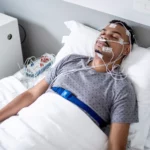 Understanding Sleep Apnea: Causes, Symptoms, and Effective TreatmentsSleep is one of the most vital pillars of good health, but for millions of people, restful sleep is harder to achieve than it should be. One of the most common reasons for poor sleep quality is sleep apnea, a potentially serious sleep disorder that often […]
Understanding Sleep Apnea: Causes, Symptoms, and Effective TreatmentsSleep is one of the most vital pillars of good health, but for millions of people, restful sleep is harder to achieve than it should be. One of the most common reasons for poor sleep quality is sleep apnea, a potentially serious sleep disorder that often […]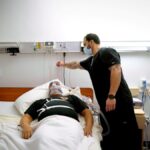 Bulk-Bill Sleep Study Brisbane: Affordable Options for LocalsWhat Are Bulk-Bill Sleep Studies and How Do They Work in Brisbane? Bulk-bill sleep study Brisbane services provide you with direct billing to Medicare, eliminating upfront costs for diagnostic testing. When you receive a bulk-bill sleep study, the […]
Bulk-Bill Sleep Study Brisbane: Affordable Options for LocalsWhat Are Bulk-Bill Sleep Studies and How Do They Work in Brisbane? Bulk-bill sleep study Brisbane services provide you with direct billing to Medicare, eliminating upfront costs for diagnostic testing. When you receive a bulk-bill sleep study, the […]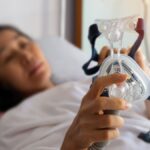 Sleep Apnea Test Adelaide: Early Diagnosis for Better HealthWhat Is Sleep Apnea and Why Is Early Diagnosis Important? Sleep apnea is a serious sleep disorder where your breathing repeatedly stops and starts during sleep. This condition affects millions of people worldwide, yet many remain undiagnosed, missing […]
Sleep Apnea Test Adelaide: Early Diagnosis for Better HealthWhat Is Sleep Apnea and Why Is Early Diagnosis Important? Sleep apnea is a serious sleep disorder where your breathing repeatedly stops and starts during sleep. This condition affects millions of people worldwide, yet many remain undiagnosed, missing […]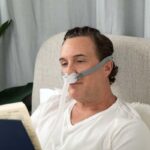 Sleep Apnea Explained: Causes, Symptoms, and Treatment OptionsIntroduction: Why Sleep Apnea Deserves Your Attention Picture this: you go to bed at a reasonable hour, expecting a full night’s rest, yet you wake up feeling drained, irritable, and foggy-headed. It’s not just “bad sleep” — it could be sleep apnea, a […]
Sleep Apnea Explained: Causes, Symptoms, and Treatment OptionsIntroduction: Why Sleep Apnea Deserves Your Attention Picture this: you go to bed at a reasonable hour, expecting a full night’s rest, yet you wake up feeling drained, irritable, and foggy-headed. It’s not just “bad sleep” — it could be sleep apnea, a […]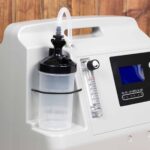 Top 5 Online Stores to Purchase a Portable Oxygen Concentrator MachinePortable oxygen concentrators (POCs) have become essential devices for individuals with respiratory conditions, providing a convenient and reliable source of oxygen. With the rise of e-commerce, purchasing a POC has never been easier. However, selecting […]
Top 5 Online Stores to Purchase a Portable Oxygen Concentrator MachinePortable oxygen concentrators (POCs) have become essential devices for individuals with respiratory conditions, providing a convenient and reliable source of oxygen. With the rise of e-commerce, purchasing a POC has never been easier. However, selecting […] Portable Oxygen Concentrator Australia: Features and BenefitsIn recent years, the demand for portable oxygen concentrators (POCs) has surged in Australia, largely due to the increasing prevalence of respiratory conditions and the need for greater mobility among patients. These devices provide a continuous supply […]
Portable Oxygen Concentrator Australia: Features and BenefitsIn recent years, the demand for portable oxygen concentrators (POCs) has surged in Australia, largely due to the increasing prevalence of respiratory conditions and the need for greater mobility among patients. These devices provide a continuous supply […]
